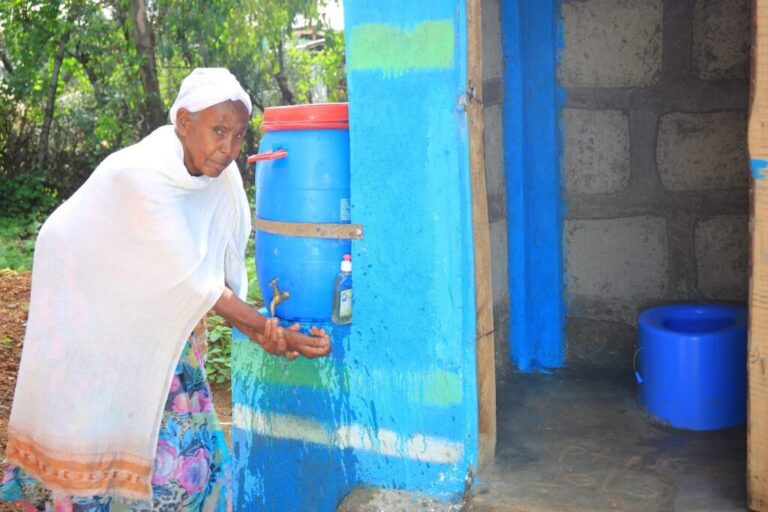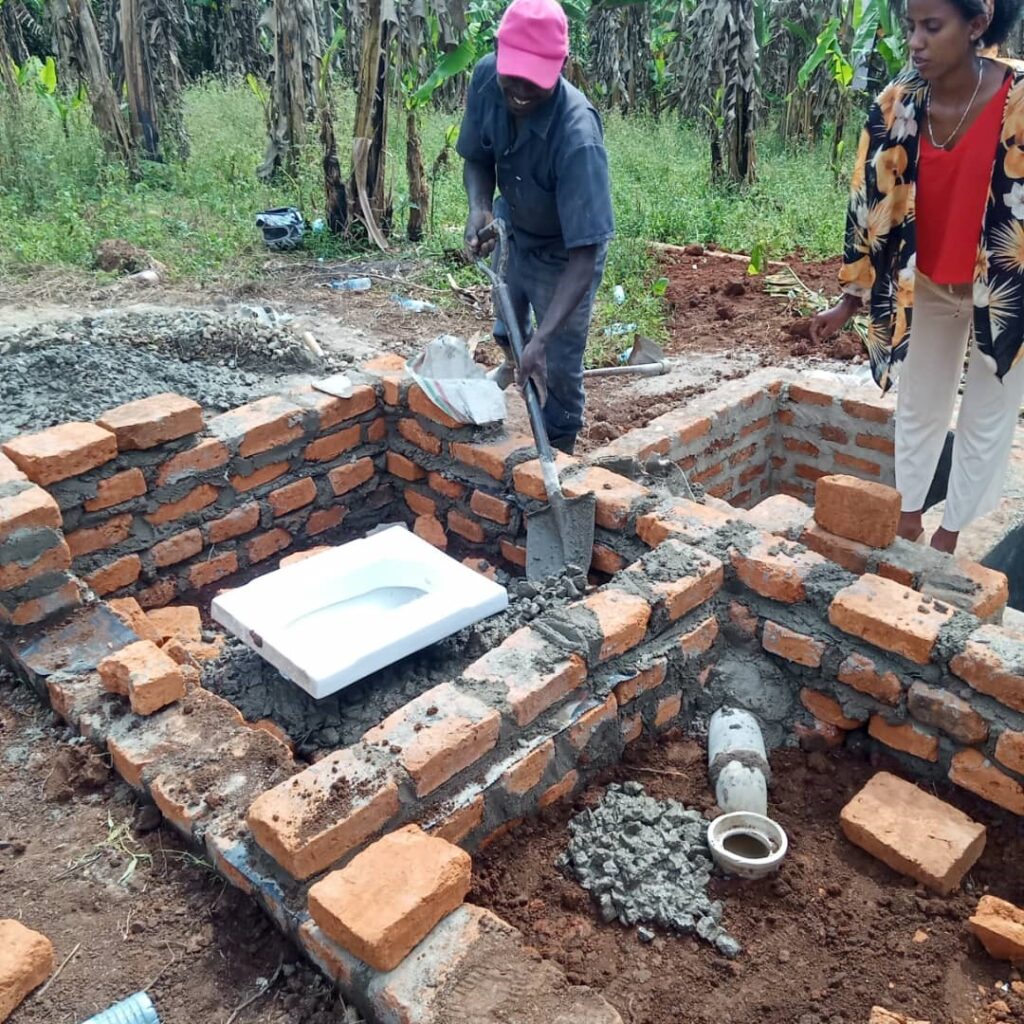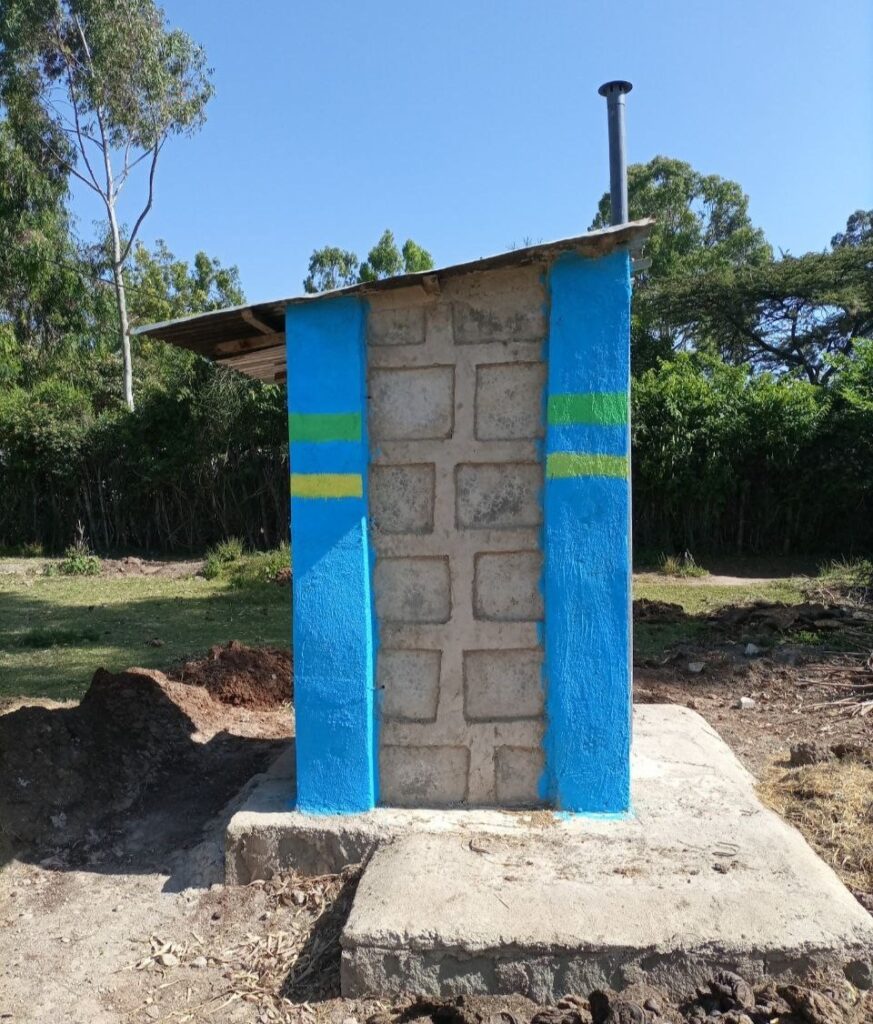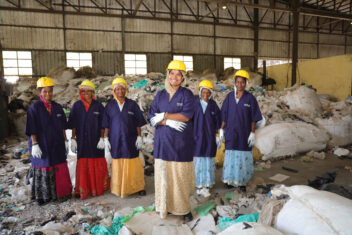Reaching community elders in Oromia Region, Ethiopia with safely managed sanitation

Elders avoid using the toilet due to poor and inaccessible facilities
“Sometimes I used to eat and drink less because I thought this way, I could manage to visit a toilet a few days a week,” Bogalech Debebe told our FINISH Mondial programme team. She is an 85-year-old woman who lives in Koba Golden Kebele, Oromiya Regional State of Ethiopia. Her extended family depends on a basic pit toilet which was poorly constructed from wood seats and plastered with mud. As an elder, Bogalech has trouble using the toilet in squatting positions. “I suffered a lot because the previous pit was not comfortable to use,” said Bogalech, adding, “It is uncommon to talk about this issue in our community as everybody can use the last pit, and no one pays attention to elders’ needs. I worried a lot! Sometimes, even my children would get worried about me.”
Bogalech is among millions of cases that struggle daily with poor sanitation and defunct facilities. According to UNICEF, over 22 million Ethiopian citizens are practicing open defecation, especially in rural areas. The discomfort and unhygienic toilet infrastructure cause severe yet avoidable diseases such as child mortality, morbidity, and malnutrition. This has compounding impact, leading to an increased financial burden as families must pay for expensive and often medical treatment. Furthermore, it leads to poor health in the environment where the dumping of untreated waste takes place.
The sanitation supply chain – Addressing the big picture through local markets
WASTE has been working with local partners in Ethiopia to tackle this challenge. We work together to facilitate key stakeholders to work together and strengthen local sanitation supply chains. This means sanitation (toilets, handwashing facilities) and the subsequent products and services needed to safely empty, transport, treat and reuse waste, are affordable and accessible for all. Our holistic approach aims for true local ownership over the systems being established, and therefore, the sustainability of every aspect. Overall, an efficient and well-established sanitation supply chain provides local people with cheaper sanitation systems, thus making sanitation more accessible and the lives of all people in each community more convenient, healthier, and safer.
Addressing the entire supply chain with a market-based approach to improving sanitation and linked waste management systems is something WASTE has been championing for decades. It started with our Integrated Solid Waste Management (ISWM) approach and later developed into our Diamond Model. WASTE’s Diamond Model is a unique philosophy that champions sustainability and local ownership for development—in this case, focusing on improving sanitation.
This approach not only offers Ethiopians affordable and safe toilets adapted to local and personal needs and wants, like Bogalech shared, but also creates jobs for local people in both the supply and demand sides of the sanitation markets. Besides Bogalech, our FINISH Mondial programme has helped improve over 6,000 safely managed sanitation facilities in Ethiopia over the last 2 years alone.




